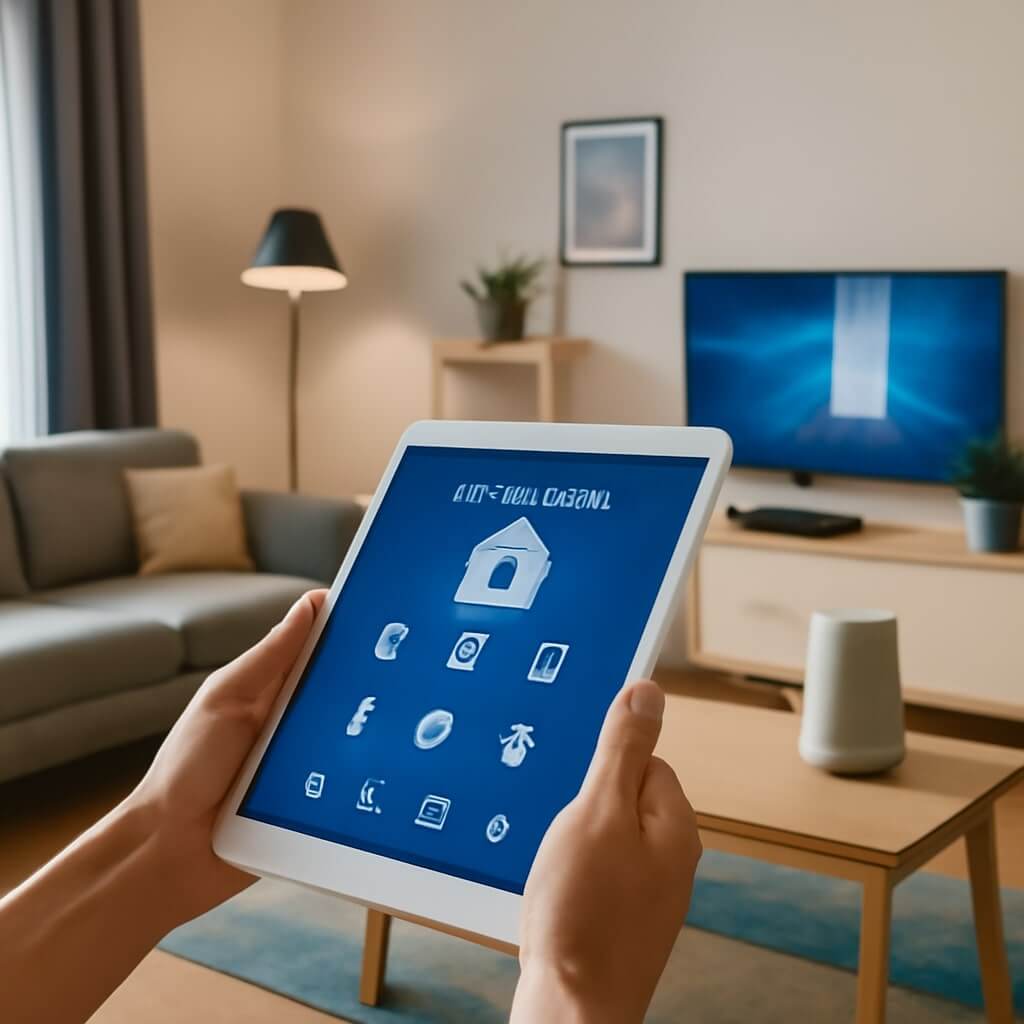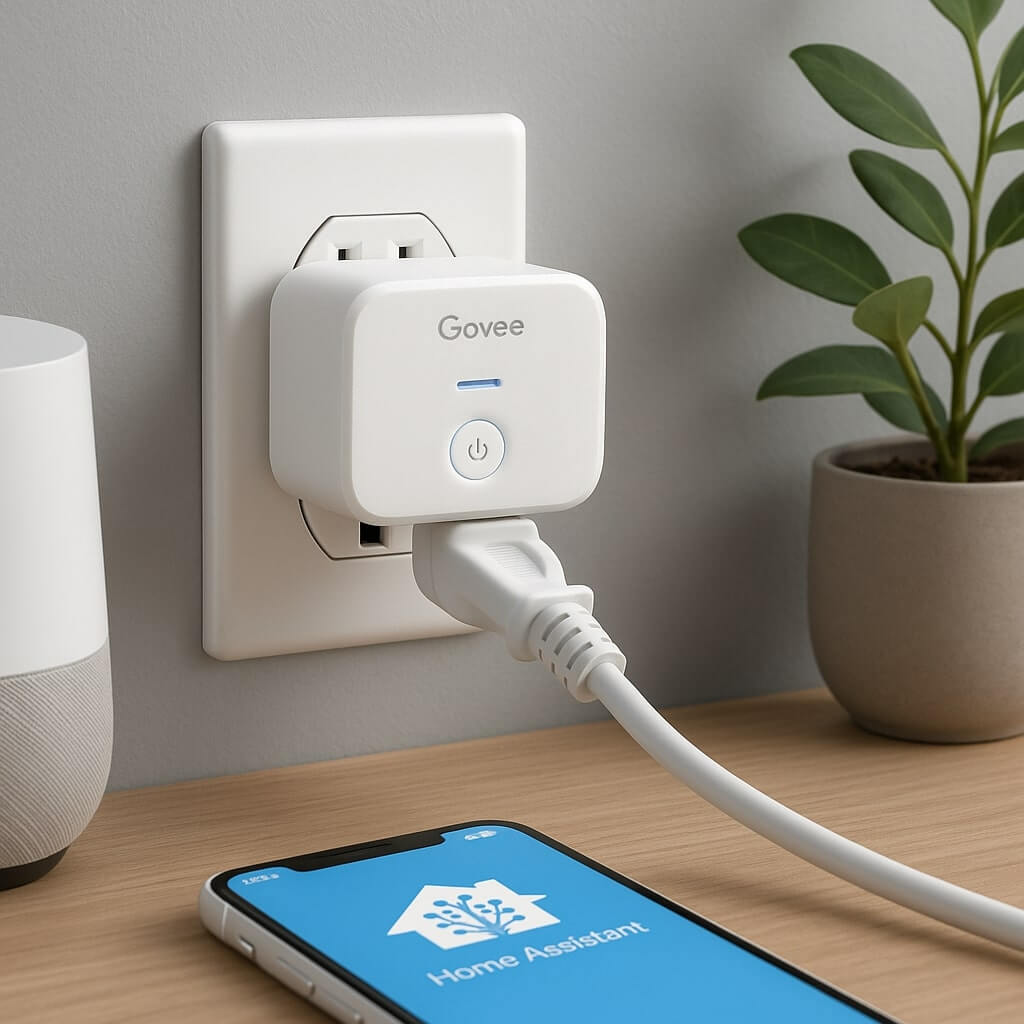The rise of artificial intelligence (AI) is fundamentally transforming multiple industries across the globe, and the home sector is no exception. In India, smart homes powered by AI are becoming increasingly popular, revolutionizing the way people interact with their living spaces. This transformation is not just about convenience but also about enhancing security, energy efficiency, and overall quality of life. As technology advances, AI in smart homes is unlocking a range of possibilities that were once thought to be far-fetched. In this article, we will explore how AI is reshaping smart homes in India and the new possibilities it brings for the future.
The Rise of AI-Powered Smart Homes in India

AI technology has evolved rapidly over the past few years, and its integration into home automation systems is one of the most exciting advancements. In India, the adoption of smart homes has increased, especially in urban areas where technology-driven lifestyles are in demand. A growing number of households are installing AI-powered devices to streamline daily tasks, enhance comfort, and ensure safety.
How AI Powers Smart Homes
AI in smart homes is largely centered around automation, allowing various systems and devices to work together seamlessly. These devices collect data through sensors, learning from user behavior and preferences, which allows them to adapt to a homeowner’s routine. Here are some key ways AI is being used in Indian smart homes:
- Voice-Controlled Systems: Smart assistants like Amazon Alexa, Google Assistant, and Apple Siri allow homeowners to control lights, appliances, and even security systems with voice commands. These devices use AI to understand natural language and carry out tasks efficiently.
- Smart Security Systems: AI-powered cameras, motion detectors, and alarms are improving home security. They can identify potential threats, such as intruders or unusual activity, and alert homeowners immediately.
- Energy Management: AI helps optimize energy consumption by adjusting thermostats, lights, and appliances based on usage patterns. Smart meters and energy-efficient devices not only reduce electricity bills but also contribute to environmental sustainability.
- Home Automation: AI systems can manage tasks such as regulating room temperature, controlling curtains, or adjusting the lighting depending on the time of day or user preferences.
The Benefits of AI-Driven Smart Homes
1. Enhanced Convenience
AI enhances the convenience of managing a home by automating daily tasks. Homeowners no longer need to manually adjust lights, temperature, or appliances. AI learns and adapts to personal preferences, making the home environment more comfortable without constant intervention.
2. Improved Energy Efficiency
One of the most significant benefits of smart homes is energy efficiency. AI algorithms optimize energy usage by monitoring patterns and adjusting settings for heating, cooling, lighting, and appliance usage. This not only helps homeowners save on utility bills but also reduces their carbon footprint.
3. Increased Security
AI-powered security systems, such as smart cameras, doorbell cameras, and motion detectors, offer better protection than traditional security measures. AI can analyze video footage in real-time, recognizing faces and identifying abnormal movements, ensuring a quicker response to potential threats.
4. Seamless Integration
AI in smart homes ensures that all devices are interconnected, creating a seamless experience. For instance, if the thermostat detects a temperature drop, it can automatically adjust the heating. Similarly, if the security system detects motion at night, the lights can turn on, providing both security and convenience.
5. Personalized Experiences
With AI, smart homes can provide a tailored experience. For example, smart lighting can adjust to your preferred brightness levels, or a smart refrigerator can suggest recipes based on available ingredients. The more a system learns about the inhabitants’ routines and preferences, the more personalized the experience becomes.
Future Possibilities for AI in Indian Smart Homes

As AI technology continues to advance, the possibilities for smart homes in India are limitless. Here are some emerging trends that are expected to shape the future of smart living:
1. AI-Driven Healthcare Solutions
In the near future, AI-enabled smart homes may offer healthcare solutions such as remote monitoring of elderly family members or patients with chronic conditions. AI could track vitals, medication schedules, and even predict potential health issues based on historical data.
2. Advanced Home Automation
The future of home automation involves even more advanced AI systems capable of anticipating needs before they arise. Imagine a home where the lighting, temperature, and even music change according to the time of day, the mood of the inhabitants, or their location in the house.
3. Sustainable Living
AI will play a pivotal role in creating more sustainable homes. For instance, AI could integrate renewable energy sources like solar panels into the smart home ecosystem, ensuring that homes consume less energy and generate their own power. AI systems will continuously optimize the use of these renewable sources.
4. Autonomous Vehicles and Smart Homes Integration
With the rise of autonomous vehicles, AI could further integrate smart homes with transportation systems. A homeowner’s smart home could adjust the environment in their home according to their arrival time, or even prepare their car for the journey ahead based on traffic and weather conditions.
5. Smart Kitchens
AI technology will make its way into kitchens with smart refrigerators that not only store food but also help plan meals, suggest recipes, and create grocery lists. AI-enabled cooking devices will offer hands-free cooking solutions, further enhancing the convenience and efficiency of daily life.
FAQ
A smart home is a residence equipped with technology that allows the homeowner to control various systems, such as lighting, temperature, and security, remotely or automatically using connected devices.
AI in smart homes uses algorithms and machine learning to analyze data from various devices, learn user behavior, and automate tasks like controlling lights, adjusting thermostats, and managing energy consumption.
While the initial setup cost of AI-powered smart homes may be higher than traditional homes, the long-term benefits, including energy savings, enhanced security, and increased convenience, often outweigh the costs.
AI systems enhance home security by analyzing video footage, recognizing faces, and detecting unusual activities in real time. They can also send alerts to homeowners, allowing for a quicker response to potential threats.
Yes, AI helps optimize energy usage by adjusting heating, cooling, and lighting systems based on occupancy patterns, ensuring homes are more energy-efficient, which leads to reduced electricity costs and a smaller environmental footprint.
Conclusion
AI is revolutionizing the way we live, and its impact on smart homes in India is only beginning to unfold. From improving convenience and energy efficiency to providing enhanced security and personalized experiences, AI is unlocking new possibilities for homeowners. As the technology continues to evolve, the future of smart homes in India looks bright, promising even more innovative solutions to enhance the quality of life. Embracing AI in the home is not just about keeping up with technological trends—it’s about creating a smarter, more sustainable, and more connected future for every household.




